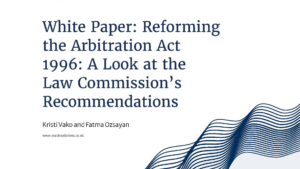Why is there urgency to reform Air Passenger Rights in Europe?
Have you got a question?
From air companies continually challenging the measure’s validity to EU Member State courts refusing to apply its provisions, the EU’s and UK’s Passenger Rights Regulation 261/2004 has been a source of ongoing controversy. While some issues, particularly the impact of the heavily criticized Sturgeon decision, may be easily resolved, other problems, such as the relationship between EU law and the exclusivity provisions of the Montreal Convention of 1999 and industry’s compliance record, remain. When looked at in a broader legal and political context, the conclusions represent a more sophisticated negotiation than is commonly assumed.
Air travel is becoming more popular than it has ever been given the low cost of intra-European flights and the rise in globalisation. This has led to an increase in routes and allowed new operators to enter the market.
The benefits to EU citizens are significant, however, financial forecasting becomes difficult as passengers’ book and throwaway cheap tickets at random, intensive air frame usage may put pressure on already tight maintenance schedules, and small delays can quickly spiral out of hand.
It is worth noting that the European Commission in 2013 proposed an amendment to the regulation. But despite nine years on, we have yet to see reform. The proposals were meant to clarify positions such as the definition of ‘extraordinary circumstances’ with a non-exhaustive list of the types of situations that would apply. Growth of a business is contingent on financial planning but lack of clarity for the airlines has hindered growth plans and given rise to claims management companies seeking to profit from the lack of detail.
When it comes to air travel, many of us take for granted the rights we enjoy. But that was not always the case. Back in the 1970s and 1980s, air passengers had very little protection – and even less rights when it came to luggage. Thankfully, things have gradually improved over the years, but there is still room for improvement. That is why the European Union has proposed several reforms to air passenger rights legislation.
Consumer appetite for air travel was returning, but with the current cancellations’, confidence may wane. Addressing legislation would not only mean that both airlines and consumers would not need to rely on the individual interpretation in courts across Europe, it would also help maintain consumer confidence in air travel.
Air Passenger Rights - What are they?
When flying, everyone has air passenger rights, which are critical safeguards. No matter what the situation, these rights can help to make your flying experience comfortable. Food and drink, luggage, child travel, unaccompanied youngsters traveling without an adult relative/guardian, emergency evacuation rights are among the most prevalent. The first step in ensuring a great flying experience is to know your rights. Passenger rights vary from country to country, but at their core they are simply regulations that protect air travellers, ensuring they are properly cared for and compensated
You are generally protected by some form of airline passenger rights depending on the laws of the country you begin your journey in. It makes no difference which airline you fly with.
Aviation Regulation
Our aviation attorneys are regulatory experts who understand the subtleties of aviation legislation. Moreover, we have financial regulation experience and the ability to assist with aircraft financing investigations.
We keep up to date with:
- Aviation regulations such as EU Air service regulation and IATA resolutions
- Aviation safety regulations
- Environmental regulations
- Tax regulations
- Consumer regulations
- Financial regulations
Our aviation legal services
Oracle’s Aviation department combines a wide range of abilities. Our solicitors are experienced aviation attorneys who ensure that our customers have counsel from the outset of a dispute, enabling them to take full advantage of their expertise. We have skilled barristers as well as Employment, Commercial, and Personal Injury teams to supplement all our clients’ legal needs. Our expert aviation legal team supports our clients’ needs across a full spectrum of aerospace legal work including:
- Passenger rights claims under Regulation EC 261/2004, the Montreal Convention or other consumer laws. This work encompasses everything from volume casework, where our scale and flexibility drives significant cost efficiencies while maintaining excellent quality, to strategic litigation aimed at improving case law or preventing exploitation of uncontested claims by profit-seeking claims management companies.
- Aircraft leasing, airport agreements and other contractual issues
- Tax affairs, including responding to national tax enquiries and defending “bundled”
- Tax refund claims
- Personal injury
- Employment law
Harry Snook leads Oracle’s Aviation teams across multiple jurisdictions, ensuring that each of Oracle’s airline clients benefits from a consistently excellent legal service that is...
-
Aviation House, 125 Kingsway
London WC2B NH
United Kingdom
- (+44) 020-3051-5060
Book a call back
Share this article
Got a question?
Please complete this form to send an enquiry. Your message will be sent to one member of our team.
Related posts

Oracle Solicitors advises a German assets acquisition by a Chinese purchaser
Our client is a company listed in Shanghai Stock Exchange, one of the biggest intelligent power distribution solution providers as well as manufacturer of smart meters, transformers, box-type substations, E-Car charger and photovoltaic inverters.

Legal regulations for artificial intelligence (AI)
AI is a rapidly growing sector in relation to which governments are trying to anticipate the relevant legal aspects that surrounds it.

Reforming the Arbitration Act 1996: A Look at the Law Commission’s Recommendations
Have you got a question? Enquire Now Kristi Vako and Fatma Ozsayan have looked at the new recommendations published by the Law Commission.

Tax Efficient Pension Planning?
With the speculation rife about the new Labour government’s potential changes to pension policies, planning for a tax-efficient retirement is more pertinent than



